Program
Program-by-Day: Friday • Saturday • Sunday • Monday • Tuesday
 President's Program (President's Address; President's Symposium)
President's Program (President's Address; President's Symposium)
AAI President's Address
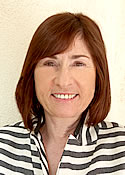
Friday, May 8, 5:00 PM, Great Hall A
Linda A. Sherman, Scripps Research Institute, AAI President
Using Autoimmunity to Inform Tumor Immunity
Steven J. Burakoff, The Tisch Cancer Institute
Introduction
AAI President's Symposium
Partners in Crime and T Cell Sleuths
Monday, May 11, 12:30 – 2:30 PM
Ernest N. Morial Convention Center, Great Hall A
William R. Heath, University of Melbourne, Tissue-resident memory in viral and parasite immunity
Linda S. Wicker, University of Cambridge, From autoimmune disease genetics to immune-based therapies
Charles D. Surh, Academy of Immunology and Microbiology, Institute for Basic Science, Pohang, Korea, Regulation of immune homeostasis to commensal bacterial and dietary antigens
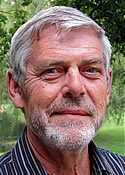
Matthew F. Mescher
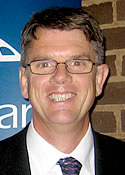
William R. Heath
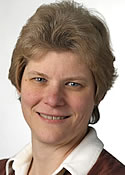
Linda S. Wicker

Charles D. Surh
 Distinguished Lectures
Distinguished Lectures
Saturday, May 9, 6:00 PM, Great Hall A
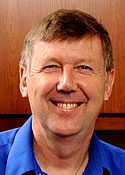
Dennis R. Burton
Scripps Research Institute
Broadly neutralizing antibodies evolved to counter the structure and variability of HIV and provide a basis for vaccine design
Sunday, May 10, 6:00 PM, Great Hall A
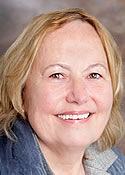
Christine A. Biron
Brown University
Fuzzy borders in innate and adaptive immunity: experience conditions NK and CD8 T cell responses during viral infection
Monday, May 11, 6:00 PM, Great Hall A
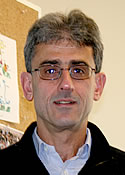
Albert S. Bendelac
University of Chicago
Innate and innate-like lymphocytes
 Major Symposia
Major Symposia
Saturday, May 9, 8:00 AM – 11:30 AM
Major Symposium A: Realizing the Potential of Cancer Immunotherapy
Great Hall AJedd D. Wolchok, Memorial Sloan Kettering Cancer Center
Padmanee Sharma, University of Texas MD Anderson Cancer Center
Jedd D. Wolchok, Memorial Sloan Kettering Cancer Center, Combined checkpoint blockade
Padmanee Sharma, University of Texas MD Anderson Cancer Center, Immune checkpoint therapies: clinical success and next steps
Holbrook Kohrt, Stanford Cancer Institute, Combination monoclonal antibody therapy: dual tumor and immune targeting
Steven A. Rosenberg, NCI, NIH, The curative potential of T cell transfer immunotherapy for human cancer
Pramod K. Srivastava, University of Connecticut School of Medicine, What does a host-protective tumor-specific neo-antigen look like?
Suzanne L. Topalian, Johns Hopkins University School of Medicine, PD-1 pathway blockade in cancer therapy: new frontiers
Major Symposium B: The Microbiota in Immunity and Inflammation
Great Hall BWendy S. Garrett, Harvard School of Public Health
Yasmine Belkaid, NIAID, NIH
Yasmine Belkaid, NIAID, NIH, From mutualism to parasitism: context and consequences
Wendy S. Garrett, Harvard School of Public Health, The gut microbiome in colitis and colorectal cancer
Eric G. Pamer, Memorial Sloan Kettering Cancer Center, Microbiota-mediated defense against intestinal infections
Ami S. Bhatt, Stanford University, Exploring the composition of the human superorganism: the microbiome in an immunocompromised host
Bana Jabri, University of Chicago, Harnessing the interplay between commensals and pathogens in septic shock
Thaddeus S. Stappenbeck, Washington University School of Medicine, Commensal-host interactions in the intestine and their relationship to disease pathogenesis
Sunday, May 10, 8:00 AM – 11:30 AM
Major Symposium C: Looking Within: Mechanisms of Cytosolic Immune Surveillance
Great Hall ARussell E. Vance, HHMI, University of California, Berkeley
Zhijian 'James' Chen, HHMI, University of Texas Southwestern Medical Center
Russell E. Vance, HHMI, University of California, Berkeley, Mechanisms and consequences of inflammasome activation
Michaela U. Gack, Harvard Medical School, RIG-I-like receptor regulation in virus infection and immunity
Edward A. Miao, University of North Carolina at Chapel Hill, Inflammasomes in host defense
Sunny Shin, University of Pennsylvania Perelman School of Medicine, Overcoming pathogen-encoded virulence activities to initiate innate immune defense
Zhijian 'James' Chen, HHMI, University of Texas Southwestern Medical Center, Innate immune sensing and signaling of cytosolic DNA
Thomas F. Gajewski, University of Chicago, Innate immune sensing of tumors via the host STING pathway
Major Symposium D: Lymphatics and Stroma: Key Players in the Specialized Lymphoid Organ Niche
Great Hall BGwendalyn J. Randolph, Washington University School of Medicine
Shannon J. Turley, Genentech
Gwendalyn J. Randolph, Washington University School of Medicine, Lymphatics in inflammatory disease
Laura Santambrogio, Albert Einstein College of Medicine, Lymph formation, circulation, and immunological role
Reinhold Förster, Hannover Medical School, Lymph node homing of immune cells via afferent lymphatics
Troy D. Randall, University of Alabama at Birmingham, Paradoxical role of the omentum in immunity to peritoneal tumors
Shannon J. Turley, Genentech, Regulation of leukocyte function and territoriality by fibroblastic reticular cells
Biju Parekkadan, Harvard Medical School, Lymph node cell therapy
Monday, May 11, 8:00 AM – 11:30 AM
Major Symposium E: Roots and Mechanisms of Human Autoimmunity
Generously supported by SanofiGreat Hall A
Eric Meffre, Yale University
Jane Hoyt Buckner, Benaroya Research Institute at Virginia Mason
Eric Meffre, Yale University, Defects in early B cell tolerance checkpoints are common to autoimmune diseases
Jane Hoyt Buckner, Benaroya Research Institute at Virginia Mason, Mapping the immune pathways that drive T1D development
Megan Sykes, Columbia University, New approaches to understanding human allo- and autoimmune responses
Erik J. Peterson, University of Minnesota, PTPN22 promotes interferogenic signaling in myeloid cells
Edward K. Wakeland, University of Texas Southwestern Medical Center, A genomic analysis of systemic autoimmunity
Judith A. James, Oklahoma Medical Research Foundation, University of Oklahoma Health Sciences Center, Roles for impaired immune regulation in transition from preclinical autoimmunity to clinical lupus
Major Symposium F: Networking through Mobile Cells and Synaptic Interfaces
Great Hall BMichael L. Dustin, University of Oxford
Janis K. Burkhardt, Children's Hospital of Philadelphia and University of Pennsylvania
Michael L. Dustin, University of Oxford, Novel signals in the immunological synapse
Janis K. Burkhardt, Children's Hospital of Philadelphia/University of Pennsylvania, Cytoskeletal control of integrin activation at the immunological synapse
Morgan Huse, Memorial Sloan Kettering Cancer Center, Lipid-based patterning of the immunological synapse
Clotilde Théry, INSERM U932 / Institut Curie, Exosomes and other extracellular vesicles in communication between tumors and the immune system
Anna Huttenlocher, University of Wisconsin, Imaging inflammation: implications to human disease
Thorsten R. Mempel, Massachusetts General Hospital/Harvard Medical School, Immune cell communication in the tumor environment
Tuesday, May 12, 8:00 AM – 11:30 AM
Major Symposium G: Regulating Immunity: Tregs and Beyond
Generously supported by SanofiGreat Hall A
Steven F. Ziegler, Benaroya Research Institute
Claudia Mauri, University College London
Andrea Cerutti, Mount Sinai School of Medicine, IgD: an ancestral regulator of Th2 immune responses
Jennifer L. Gommerman, University of Toronto, Befuddled B cells and EAE pathogenesis
Claudia Mauri*, University College London, Microbiota, regulatory B cells, and arthritis: insight into a new mechanism of regulation
* Supported by the British Society for Immunology
Mitchell Kronenberg, La Jolla Institute for Allergy & Immunology, Natural killer T cells: one specificity, but different functions
Liang Zhou, Northwestern University, Regulation of Tregs in the mucosal tissues
Steven F. Ziegler, Benaroya Research Institute, Development and function of regulatory T cells
Major Symposium H: Mechanisms of Host Immunity: Insights from Eukaryotic Pathogens
Great Hall BWilliam C. Gause, New Jersey Medical School, Rutgers, The State University of New Jersey
De'Broski R. Herbert, University of California, San Francisco
De'Broski R. Herbert, University of California, San Francisco, The helminthic harangue on immunity and repair
Amariliz Rivera, New Jersey Medical School, Rutgers, The State University of New Jersey, Inflammatory monocytes orchestrate innate antifungal immunity in the lung
William C. Gause, New Jersey Medical School, Rutgers, The State University of New Jersey, Helminths, wound healing, and worm expulsion
Padraic Fallon, Trinity College Dublin, Helminth activation of innate and adaptive immunity to achieve chronic infections
P'ng Loke, NYU School of Medicine, Alternatively activated macrophages derived from monocytes and tissue-resident macrophages during helminth infections
Edward J. Pearce, Washington University School of Medicine, The metabolic regulation of alternative macrophage activation
 Award Lectures & Presentations
Award Lectures & Presentations
Annually recognizing immunologists of extraordinary professional achievement and promise, the AAI Career Awards include:
- AAI Lifetime Achievement Award
- AAI Distinguished Service Award
- AAI Excellence in Mentoring Award
- AAI-Thermo Fisher Meritorious Career Award
- AAI-BioLegend Herzenberg Award
- AAI-Steinman Award for Human Immunology Research
- AAI-BD Biosciences Investigator Award
AAI Lifetime Achievement Award Presentation
Chair:
Linda A. Sherman, Scripps Research Institute, AAI President
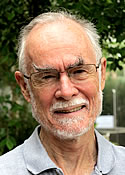 Jonathan Sprent
Jonathan SprentGarvan Institute of Medical Research
AAI President Linda A. Sherman will introduce the awardee and present the award prior to the start of the President's Address.
The AAI Lifetime Achievement Award is the highest honor bestowed by the AAI Council upon an AAI member. This award recognizes a deserving member for a career of scientific achievement and for contributions to AAI and fellow immunologists.
AAI Distinguished Service Award Presentation
Chair:
M. Michele Hogan, AAI Executive Director
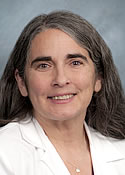 Elizabeth J. Kovacs
Elizabeth J. KovacsLoyola University Chicago Stritch School of Medicine
AAI Executive Director M. Michele Hogan will introduce the awardee and present the award during the AAI Business Meeting & Awards Presentations session.
For outstanding service to AAI and the immunology community as member and chair of the AAI Committee on Public Affairs, 2007–2014
AAI-BD Biosciences Investigator Award Presentation and Lecture
Saturday, May 9, 4:30 PM – 5:30 PM, Great Hall A
Chair:
Linda A. Sherman, Scripps Research Institute, AAI President
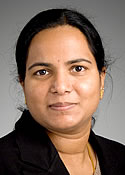 Thirumala-Devi Kanneganti
Thirumala-Devi KannegantiSt. Jude Children's Research Hospital
Regulators of inflammatory responses
AAI President Linda A. Sherman and BD Biosciences Vice President of Market Development Robert Balderas will introduce the awardee and present the award immediately prior to Dr. Kanneganti's lecture.
The AAI-BD Biosciences Investigator Award recognizes an early-career investigator who has made outstanding contributions to the field of immunology.
AAI-BioLegend Herzenberg Award Presentation
Saturday, May 9, 6:00 PM, Great Hall A
Chair:
Linda A. Sherman, Scripps Research Institute, AAI President
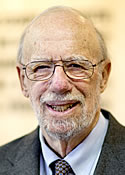 Matthew D. Scharff
Matthew D. ScharffAlbert Einstein College of Medicine
AAI President Linda A. Sherman and Leonore A. Herzenberg, Professor (Research) of Genetics, Stanford School of Medicine, will introduce the awardee and present the award prior to the start of Saturday's Distinguished Lecture.
The AAI-BioLegend Herzenberg Award recognizes outstanding research contributions to the field of immunology in the area of B cell biology.
AAI-Steinman Award for Human Immunology Research Presentation and Lecture
Chair:
Linda A. Sherman, Scripps Research Institute, AAI President
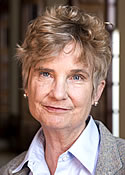 Mary Ellen Conley
Mary Ellen ConleyRockefeller University
Patients with defects in B cell development
AAI President Linda A. Sherman will introduce the awardee and present the award immediately prior to Dr. Conley's lecture.
The AAI-Steinman Award for Human Immunology Research recognizes an individual who has made significant contributions to the understanding of immune processes underlying human disease pathogenesis, prevention, or therapy.
FASEB Excellence in Science Award Presentation and Lecture
Monday, May 11, 10:15 AM– 11:15 AM, Room 208-209
Chair:
Virginia Shapiro, Mayo Clinic, AAI Committee on the Status of Women Chair
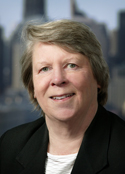 Diane E. Griffin
Diane E. GriffinJohns Hopkins Bloomberg School of Public Health
The immune response and clearance of acute viral infections
AAI Committee on the Status of Women Chair Virginia Shapiro and Immediate Past FASEB President Margaret K. Offermann will introduce the awardee and present the award immediately prior to Dr. Griffin's lecture.
The FASEB Excellence in Science Award is given in recognition of outstanding achievement by women in biological science. Recipients have furthered progress in a particular discipline through excellence in research.
AAI Excellence in Mentoring Award Presentation
Chair:
Linda A. Sherman, Scripps Research Institute, AAI President
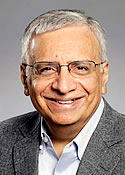 Rafi Ahmed
Rafi AhmedEmory University School of Medicine
AAI President Linda A. Sherman, Susan M. Kaech, Yale University, and E. John Wherry, University of Pennsylvania, will introduce the awardee and present the award prior to the start of the President's Symposium.
The AAI Excellence in Mentoring Award recognizes exemplary career contributions to a future generation of scientists.
AAI-Thermo Fisher Meritorious Career Award Presentation and Lecture
Monday, May 11, 4:30 PM – 5:30 PM, Great Hall A
Chair:
Linda A. Sherman, Scripps Research Institute, AAI President
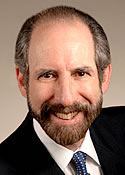 Ronald N. Germain
Ronald N. GermainNational Institute of Allergy and Infectious Diseases, National Institutes of Health
Developing a quantitative spatiotemporal understanding of immunity using imaging and systems biology
AAI President Linda A. Sherman and Thermo Fisher Scientific Senior Market Development Manager Jeff Croissant will introduce the awardee and present the award immediately prior to Dr. Germain's lecture.
The AAI-Thermo Fisher Meritorious Career Award recognizes a mid-career scientist for outstanding research contributions to the field of immunology.
In addition to Career Awards, AAI annually provides more than 700 AAI meeting Travel Awards and Grants to recognize the promise and bolster the professional development of investigators of all career stages, including underrepresented minority scientists and trainees.
- AAI Trainee Abstract Awards
- AAI Trainee Poster Awards
- AAI-Thermo Fisher Trainee Achievement Awards
- Pfizer-Showell Travel Award
- Lefrançois-BioLegend Memorial Award
- Chambers-eBioscience Memorial Award
- Lustgarten-eBioscience Memorial Award
- AAI Underrepresented Scientist Travel Awards
- AAI Early Career Faculty Travel Grants
- AAI Laboratory Travel Grants
- AAI Undergraduate Faculty Travel Grants
For information on all AAI Awards, visit www.aai.org/Awards.
 AAI Committee Symposia & Sessions
AAI Committee Symposia & Sessions
AAI Clinical Immunology Committee
Translational Research Towards Awakening the Immune System in Human Disease
Monday, May 11, 3:45 PM – 5:45 PM, Room R04-R05
Robert L. Modlin, UCLA
Angela Colmone, Science Translational Medicine, AAAS
Alan Sher, NIAID, NIH, A host-directed therapy for TB infection that targets innate cytokines
Hana Golding, CBER FDA, Novel methods for measuring antibody affinity, epitope diversity, and cross-reactivity in human vaccine trials
Drew M. Pardoll, Johns Hopkins School of Medicine, Therapeutic manipulation of the microenvironment of cancer
Jeffrey A. Bluestone, University of California, San Francisco, Rebalancing the immune system through Treg biology
Angela Colmone, Science Translational Medicine, AAAS, Translational immunology research: into the future
Advances in translational immunology research have led to new approaches to awaken the immune system in the battle against infection, cancer, and autoimmune disease. This session will include discussion of present approaches and future directions that will be valuable to immunologists interested in translational research.
AAI Committee on Public Affairs
Funding for Immunology Research: Non-Federal Opportunities and NIAID Program Update
Sunday, May 10, 10:15 AM – 12:15 PM, Room 210
Clifford V. Harding, Case Western Reserve University; AAI Committee on Public Affairs Chair
William Chambers, National Vice President, Extramural Research, American Cancer Society, The role of charitable and patient advocacy organizations in funding biomedical research
Gwen Nguyen, Cause Director, Indiegogo, How crowdfunding can support biomedical research
Bruce Walker, Director, Ragon Institute of MGH, MIT and Harvard; Professor, Harvard University; and Investigator, Howard Hughes Medical Institute, The role of philanthropy in supporting biomedical research
Daniel Rotrosen, Director, Division of Allergy, Immunology and Transplantation, National Institute of Allergy and Infectious Diseases, Recent trends in NIAID-funded, investigator-initiated immunology research
NIH has long been one of the major sources of funding for immunologists and other biomedical researchers. In recent years, funding constraints have lowered NIH paylines and reduced success rates, jeopardizing the research and careers of many productive and successful scientists. This session will explore some of the alternatives to NIH funding, including patient advocacy organizations, philanthropists, and crowdfunding. In addition, the session will include an update on immunology research supported by the National Institute of Allergy and Infectious Diseases. Attendees will have ample opportunity to ask questions.
AAI Education Committee
Careers in Biotech: Panel Discussion and Networking
Saturday, May 9, 7:00 PM – 9:00 PM, Room 206-207
Nandita Bose, Biothera
Jason Fontenot, Principal Scientist, Immunology, Biogen Idec
Brian Johnson, Director, Market Development & Product Management, Thermo Fisher Scientific
Andy I. Kokaji, Senior Scientist, STEMCELL Technologies, Inc.
Isharat Yusuf, Research Investigator II, Genomics Institute of the Novartis Research Foundation
Many opportunities exist in industry for scientists with advanced degrees. There are positions in laboratory research, program management, business development, regulatory affairs, clinical trials oversight, medical liaison, and more. This panel features scientists employed in a variety of positions in industry discussing their career paths and the skills required for success in each. Following the panel discussion, enjoy casual conversation with the speakers and other scientists from industry at a networking reception.
AAI Education Committee & AAI Committee on the Status of Women
Careers in Science Roundtable
Saturday, May 9, 11:30 AM – 1:00 PM, Room 243-245
Virginia Shapiro, Mayo Clinic; AAI Committee on the Status of Women Chair
At this always popular session, you'll have the opportunity to meet with scientists at your own career stage and with more experienced scientists to explore specific career issues important to men and women in science today. Learn what others are thinking and gain insights into issues you are confronting in your own situation. Recently added topics offer insights into NIH Study Sections and considerations for scientists in M.D.-Ph.D. careers. Choose from these and the other vital topics related to the environment you work in (academic research, biotech industry, governmental agencies, non-profits), the transitions from specific career stages, or issues in balancing career and family in any career path. Don't miss this great networking opportunity! Registration Fee: $20 (Lunch included.)
Discussion topics and table leaders:
- Research Careers in Academia
- Graduate Student to Postdoc: finding a postdoc, interviewing
Table Leaders: Subbarao Bondada, University of Kentucky; Louise M. D’Cruz, University of Pittsburgh; Michelle A. Parent, University of Delaware; Gwendalyn J. Randolph, Washington University, St. Louis; T. Kent Teague, University of Oklahoma; Steven M. Varga, University of Iowa - Postdoc to PI: finding a position, interviewing, negotiating, lab start-up
Table Leaders: Lisa H. Butterfield, University of Pittsburgh; Judy L. Cannon, University of New Mexico School of Medicine; Lauren A. Zenewicz, University of Oklahoma Health Sciences Center - New PI: attracting students and postdocs, preparing for tenure
Table Leaders: Robin Stephens, University of Texas Medical Branch, Galveston; Emma H. Wilson, University of California, Riverside - Undergraduate Institutions: finding the balance in teaching, doing research
Table Leaders: Laurie P. Shornick, Saint Louis University - Mentoring Effectively
Table Leaders: Elizabeth E. Brown, University of Alabama, Birmingham; Federica Sallusto, Institute for Research in Biomedicine, Bellinzona, Switzerland
- Graduate Student to Postdoc: finding a postdoc, interviewing
- How to Build a Network
Table Leaders: Gail A. Bishop, University of Iowa; Dawn Jelley-Gibbs, Taconic Bioscience; Madeleine W. Cunningham, University of Oklahoma Health Sciences Center; Larry R. Pease, Mayo Clinic - The Two Body Problem: dual career couples
Table Leaders: Susan Kovats, Oklahoma Medical Research Foundation; Sunny Shin, Assistant Professor of Microbiology, University of Pennsylvania School of Medicine - Balancing Parenthood and Career
Table Leaders: Deepak Kaushal, Tulane University; Carolina Lopez, University of Pennsylvania School of Veterinary Medicine; Yujie Liu, GlaxoSmithKline - Careers in Biotech and Industry: moving from academia to industry and vice versa
Table Leaders: Nadita Bose, Biothera; David Huss, Biogen; Pooja Jain, Drexel University College of Medicine; Matthew P. Rausch, Infinity Pharmaceuticals; Lisa K. McNeil, Pfizer, Inc.; Michael F. Princiatta, Advaxis, Inc.; Shannon Turley, Genentech - Careers at Governmental Agencies (FDA/NIH/USDA/CDC)
Table Leaders: Yasmine Belkaid, NIAID, NIH; Avinash Bhandoola, NIH - NIH Study Section Insights
Table Leaders: Haidong Dong, Mayo Clinic; Scheherazade Sadegh-Nasseri, Johns Hopkins Medical Institute
Virginia S. Shapiro: Mayo Clinic - Negotiating an Academic Position
Table Leaders: Sarah L. Gaffen, University of Pittsburgh; Paula M. Lutz, University of Wyoming - The Physician Scientist: balancing clinical and research duties
Table Leaders: David D. Chaplin, University of Alabama, Birmingham; Jonathan Maltzman, University of Pennsylvania; Penelope A. Morel, University of Pittsburgh - Research from the M.D., Ph.D. Perspective
Table Leaders: Robin G. Lorenz, University of Alabama, Birmingham;Wayne M. Yokoyama, Washington University, St. Louis - Non-Research Careers for Scientists: careers in scientific journals, program administration, non-profits, industry
Table Leaders: Peggy Just, eBioscience, an Affymetrix business; Jennifer H. Meyers, American Association of Immunologists and The Journal of Immunology;
Kristen Porter, NIAID, NIH; Elizabeth R. Walsh, American Association of Immunologists
AAI Minority Affairs Committee
Careers Roundtable and Speed Networking Session
Saturday, May 9, 11:45 AM – 2:15 PM, Room 220-222
Supported in part by a grant to the Federation of American Societies for Experimental Biology (FASEB) from the National Institute of General Medical Sciences (NIGMS), National Institutes of Health [FASEB MARC Program: T36-GM08059-32]
Cherié L. Butts, Biogen-Idec; AAI Minority Affairs Committee Chair
Networking skills have never been more crucial to ensure success for early/mid-career scientists, including those traditionally under-represented in biomedical research. At the roundtable, take advantage of the opportunity to meet in small-group format with accomplished, senior immunologists to hear how they have handled the career challenges you now face and learn what they believe will work for you today. Then practice networking in a relaxed environment offering a structured networking exercise and personalized feedback on communicating your scientific interests/objectives most effectively. Registration Fee: $20 (Includes lunch; coffee/cookies during networking hour.)
Discussion topics and table leaders:
- Grad Student: finding a mentor; taking aim at postdoc training
Table Leaders: Eduardo Davila, University of Maryland Greenebaum Cancer Center; Santiago Partida-Sanchez, Nationwide Children's Hospital; Tonya Webb, University of Maryland School of Medicine - Postdoc: finding a mentor; taking aim at a faculty position
Table Leaders: Robert J. Binder, University of Pittsburgh; De'Broski R. Herbert, University of California San Francisco; Joseph Larkin, University of Florida - Junior Faculty: preparing for promotion and tenure
Table Leaders: Avery August, Cornell University College of Veterinary Medicine; Arturo Casadevall, Johns Hopkins Bloomberg School of Public Health; Prosper Boyaka, Ohio State University - Academia or Industry: how to decide (or switch sides)
Table Leaders: Jonathan A. Deane, GNF/Novartis; Karel Otero-Gutierrez, Biogen Idec; Margaret Bynoe, Cornell University College of Veterinary Medicine - Government Agency Careers: CDC, FDA, NIH
Table Leaders: Marta Catalfamo, NIAID, NIH; Charles Egwuagu, NEI, NIH; Alison Mawle, Centers for Disease Control and Prevention - Non-Bench-Research Science Careers (e.g., entrepreneurship; intellectual property law/policy; non-profits)
Table Leaders: James W. Lillard, Morehouse School of Medicine and JYANT Technologies, Inc. (president/CEO); Jaconda Wagner, Wagner Law LLC (intellectual property attorney); Thandi M. Onami, Bill & Melinda Gates Foundation (program officer, Global Health – HIV Vaccines)
AAI Vanguard Lecture
Monday, May 11, 11:30 AM – 12:30 PM, Room 208-209
Supported in part by a grant to the Federation of American Societies for Experimental Biology (FASEB) from the National Institute of General Medical Sciences (NIGMS), National Institutes of Health [FASEB MARC Program: T36-GM08059-32]
Cherié L. Butts, Biogen-Idec; AAI Minority Affairs Committee Chair
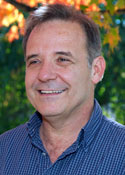 Speaker:
Speaker:
Gabriel Núñez, University of Michigan, Linking pathogen virulence, immunity, and the microbiota
Since 2003, the AAI meeting has featured a scientific lecture presented by an AAI member who is an underrepresented minority investigator. Selected for their achievements in the field of immunology, presenters are among the most prominent investigators in the field and models of successful career development.
AAI Program Committee
AAI Program Committee Workshop: Back to School: A Review of Four Fast-Moving Fields
Friday, May 8, 2:30 PM – 4:30 PM, Room R02-R03
Wendy L. Havran, Scripps Research Institute
Maria-Luisa Alegre, University of Chicago
Jian Han, HudsonAlpha Institute for Biotechnology, NextGen sequencing of immune repertoire: technology, applications, and challenges
Russell G. Jones, McGill University, Metabolomics in immunity
Melody A. Swartz, University of Chicago, Immunoregulatory roles of lymphatic endothelium and their transport functions
Kevin J. Tracey, The Feinstein Institute for Medical Research, Evolutionary integration of neural and immune pathogen sensing and response
This workshop intends to bring a broad audience up-to-date on a few emerging or rapidly changing fields or areas of technological innovation. Expert lecturers will provide an overview of each trending topic with an emphasis on communicating big picture concepts.
AAI Publications Committee
Publishing Scientific Articles: Advice and Admonition
Sunday, May 10, 12:30 PM – 2:00 PM, Room 208-209
Eugene M. Oltz, Washington University School of Medicine
Pamela J. Fink, University of Washington School of Medicine
Eugene M. Oltz, Washington University School of Medicine, Composing a masterpiece: make your data sing
Robert L. Fairchild, Cleveland Clinic, My most excellent paper was returned with serious reviewer issues: what do I do now?
Pamela J. Fink, University of Washington School of Medicine, How to stay on the right side of the ethics divide
In this session sponsored by the AAI Publications Committee, experienced editors will provide valuable insights in understanding the process of preparing a manuscript and responding to reviewers comments. Panelists will address questions such as: When writing a manuscript, what steps can an author take to enhance its impact on editors, reviewers, and, if accepted for publication, on readers? What are recommended practices for responding to reviewers’ comments? How can authors enhance the presentation of data in figures? In addition, the Editor-in-Chief of The Journal of Immunology will speak on how to avoid possible ethical missteps in scientific publishing.
AAI Veterinary Immunology Committee
AAI Veterinary Immunology Committee & American Association of Veterinary Immunologists (AAVI) Joint Symposium—Vaccines for the Modern Era: Implications for Human and Animal Health II
Saturday, May 9, 12:30 PM – 2:30 PM, Room R01
Laurel J. Gershwin, University of California, Davis
Crystal Loving, National Animal Disease Center, ARS, USDA
W. Ray Waters, National Animal Disease Center, Vaccine approaches for bovine tuberculosis: correlates of protection and relevance to human tuberculosis
Volker Gerdts, Vaccine and Infectious Disease Organization-InterVac, University of Saskatchewan, Large animal models for human vaccine research: pertussis, RSV, and others
Barney S. Graham, Vaccine Research Center, NIAID, NIH, Structure-guided development of an RSV vaccine
Crystal Loving, National Animal Disease Center, ARS, USDA, Provocation versus protection: immune responses and differential outcomes following influenza virus vaccination and challenge in pigs
This symposium will feature topics on both human and veterinary vaccines, with emphasis on new technologies and new information for more appropriate targeting of the immune response to achieve protective immunity. Advances in understanding immune responses to veterinary and human pathogens and applications of that information to vaccine design illustrate a commonality that supports the current “one health” concept in medicine.
 NIH Institute-Sponsored Symposia
NIH Institute-Sponsored Symposia
National Cancer Institute (NCI) and Radiation Research Society (RRS) Symposium
Symbiosis of Radiation and Immunology: Basic and Translational Impact
Monday, May 11, 8:00 AM – 10:00 AM, Room 208-209
Mansoor Ahmed, NCI, NIH
Chandan Guha, Albert Einstein College of Medicine of Yeshiva University
Mansoor Ahmed, NCI, NIH, Welcome/Introduction to the Guest Symposium
Gayle E. Woloschak, Northwestern University, Introduction: Information on Radiation Research Society (RRS)
Ralph R. Weichselbaum, University of Chicago Medicine, Basic radiation biology: fatal attraction for immunologists
Yang-Xin Fu, University of Chicago, Immunologist's experiences of collaborating with the field of radiation biology
Chandan Guha, Albert Einstein College of Medicine of Yeshiva University, Opportunities for immunology in clinical radiotherapy
Fernando Macian-Juan, Albert Einstein College of Medicine of Yeshiva University, Use of focused ultrasound to prevent immune escape
National Institute of Allergy and Infectious Diseases (NIAID) Symposium
Hitting the Mother Lode: Mining the Data Fields
Saturday, May 9, 12:30 PM – 2:30 PM, Room 210
Alison Deckhut Augustine, NIAID, NIH
Ashley Xia, NIAID, NIH
Atul J. Butte, Stanford University, Translating a trillion points of data into therapies, diagnostics, and new insights into disease
Steven H. Kleinstein, Yale University, Analysis of B cell antibody repertoires from next-generation sequencing
Anjana Rao, La Jolla Institute for Allergy and Immunology, Genomics approaches to understanding immune function
Martin S. Zand, University of Rochester, Start making sense: visualization and modeling of high-dimensional data
National Institute of Allergy and Infectious Diseases (NIAID) Workshop
Inflammation as an Immunological Determinant of HIV Transmission
Sunday, May 10, 12:30 PM – 2:30 PM, Room 206-207
Anjali Singh, NIAID, NIH
Alan Schultz, NIAID, NIH
David M. Asmuth, University of California, Davis
Michael R. Betts, University of Pennsylvania
Daniel C. Douek, NIAID, NIH
Mimi Ghosh, George Washington University
Ashley T. Haase, University of Minnesota
Jonathan A. Harton, Albany Medical Center
Eric Hunter, Emory University
Jeffrey D. Lifson, Leidos Biomedical Research, Inc.
Dan R. Littman, New York University School of Medicine
Bonnie J. Mathieson, NIH
Christopher J. Miller, University of California, Davis
Kristen A. Porter, NIAID, NIH
Barbara L. Shacklett, University of California, Davis
The objective of this panel discussion is to probe the relationship between inflammation and susceptibility to HIV infection and to identify novel avenues for HIV prevention, targeting mucosal microenvironment inflammation to limit HIV target cell availability. The panel will highlight recent findings and research gaps to address the key questions and challenges.
National Institute on Aging (NIA) Symposium
Rejuvenating the Aged Immune System: New Directions for Targeting Interventions
Saturday, May 9, 3:45 PM – 5:45 PM, Room 210
Janko Nikolich-Zugich, University of Arizona College of Medicine
Rebecca A. Fuldner, NIA, NIH
Nancy R. Manley, University of Georgia, Too much is not enough: Foxn1 and the maintenance of the postnatal thymus
Jorg J. Goronzy, Stanford University, miRNA regulation of T cell responses in older individuals
Janko Nikolich-Zugich, University of Arizona College of Medicine, Age-related changes in metabolic programming and trafficking of T cells: lessons from parabiosis
Donna M. Murasko, Drexel University, Enhanced IgG response to influenza vaccine in aged mice with a novel adjuvant, rOv-ASP-1
National Institute of Environmental Health Sciences (NIEHS) Symposium
Developmental Exposures and Their Effects on Immune System Function
Sunday, May 10, 12:30 PM – 2:30 PM, Room 210
Michael C. Humble, NIEHS, NIH
B. Paige Lawrence, University of Rochester
John B. Barnett, West Virginia University, Long-term changes in the immune system due to prenatal cadmium exposure
B. Paige Lawrence, University of Rochester, The environmental legacy of pollutants: linking developmental exposures to perturbations in antiviral immune responses
Kari C. Nadeau, Stanford University, Mechanistic approaches to epigenetics and toxicant exposures
Judith T. Zelikoff, New York University School of Medicine, Maternal inhalation of ambient particulate matter causes alterations in immune profiles and anti-tumor mechanisms in juvenile murine offspring
 Guest Society Symposia
Guest Society Symposia
American Association of Veterinary Immunologists (AAVI) & AAI Veterinary Immunology Committee Joint Symposium
Vaccines for the Modern Era: Implications for Human and Animal Health II
Saturday, May 9, 12:30 PM – 2:30 PM, Room R01
Laurel J. Gershwin, University of California, Davis
Crystal Loving, National Animal Disease Center, ARS, USDA
W. Ray Waters, National Animal Disease Center, ARS, USDA, Vaccine approaches for bovine tuberculosis: correlates of protection and relevance to human tuberculosis
Volker Gerdts, Vaccine and Infectious Disease Organization-InterVac, University of Saskatchewan, Large animal models for human vaccine research: pertussis, RSV, and others
Barney S. Graham, Vaccine Research Center, NIAID, NIH, Structure-guided development of an RSV vaccine
Crystal Loving, National Animal Disease Center, ARS, USDA, Provocation versus protection: immune responses and differential outcomes following influenza virus vaccination and challenge in pigs
American Society for Reproductive Immunology (ASRI) Symposium
Innate Immunity in Pregnancy
Saturday, May 9, 10:15 AM – 12:15 PM, Room R01
Vikki M. Abrahams, Yale School of Medicine
Mukesh K. Jaiswal, Rosalind Franklin University of Medicine and Science
Emmet Hirsch, NorthShore University Health System, Autophagy in preterm labor
Vikki M. Abrahams, Yale School of Medicine, Mechanisms of placental inflammation in obstetric antiphospholipid syndrome
Mukesh K. Jaiswal, Rosalind Franklin University of Medicine and Science, IL-22 prevents lipopolysaccharide-induced preterm labor in mice
Gil Mor, Yale School of Medicine, Role of placenta type I interferon on polymicrobial infection-induced preterm birth
American Society of Transplantation (AST) Symposium
T Cell Trafficking during Alloimmunity and Tolerance
Saturday, May 9, 12:30 PM – 2:30 PM, Room R06
Mandy L. Ford, Emory University
Maria-Luisa Alegre, University of Chicago
Donna L. Farber, Columbia University Medical Center, Tissue-resident human memory T cells in transplantation and immunity
Kimberly D. Klonowski, University of Georgia, IL-15-mediated control of memory T cell glycosylation and trafficking
Daniel Kreisel, Washington University in St. Louis, Tolerogenic role of central memory T cells in lung transplantation
Bryna Burrell, Immune Tolerance Network, Laminins affect T cell trafficking and allograft fate
Canadian Society for Immunology (CSI) Symposium
T Lymphocyte Regulation and Differentiation during Infection
Monday, May 11, 8:00 AM – 10:00 AM, Room R07
Irah L. King, McGill University
Jude E. Uzonna, University of Manitoba
Jun Wang, Dalhousie University, Diverse immune mechanisms for shaping anti-Chlamydia CD4 T cell responses
Simona Stäger, INRS-Institut Armand Frappier, The role of inflammation in regulating the development of T cell responses during leishmaniasis
Irah L. King, McGill University, The role of integrins in T follicular helper cell maintenance following helminth infection
S. M. Mansour Haeryfar, University of Western Ontario, Invariant T cell responses to bacterial superantigens
Jude E. Uzonna, University of Manitoba, MHC class II-restricted innate-like double negative T cells display memory characteristics and contribute to optimal anti-Leishmania immunity
Chinese Society of Immunology (ChSI) Symposium
Differentiation and Regulation of Lymphocytes
Saturday, May 9, 8:00 AM – 10:00 AM, Room R09
Zhigang Tian, University of Science and Technology of China
Olivera J. Finn, University of Pittsburgh School of Medicine
Zhigang Tian, University of Science and Technology of China, Development and differentiation of liver-resident NK cells
Bing Sun, Institute Pasteur of Shanghai, Chinese Academy of Sciences, Extracellular Matrix Protein 1 plays a critical role in driving Th2 cell migration and controlling Th17 cell differentiation
Liwei Lu, University of Hong Kong, Regulatory B cells in autoimmunity
Hai Qi, Tsinghua University, Follicular T helper cells and germinal center reaction
Zhongjun Dong, Tsinghua University, Metabolic regulation of NK cell development and activation
German Society for Immunology (DGfI) Symposium
Control of Treg/Th17 Differentiation
Monday, May 11, 3:45 PM – 5:45 PM, Room 208-209
Hans-Martin Jäck, University of Erlangen
Dieter Kabelitz, University of Kiel
Carsten Watzl, Leibniz Research Center, Dortmund
Jürgen Wienands, University of Göttingen, Immunology in Germany
Tim Sparwasser, University of Hannover, Metabolic influences that regulate CD4 T cell function
Vigo Heissmeyer, University of Munich, Post-transcriptional control of Th17 differentiation
Petra Hoffmann, University of Regensburg, Impact of Treg cell plasticity on adoptive cell therapies
Jochen Hühn, Helmholtz Society, Braunschweig, Epigenetic control of regulatory T cell development
Michael Lohoff, University of Marburg, The role of interferon regulatory factors for T cell subset differentiation
International Complement Society (ICS) Symposium
Key Roles of Complement in Adaptive Immunity, Pathogen Responses, and Human Disease
Sunday, May 10, 10:15 AM – 12:15 PM, Room R06
Andrea J. Tenner, University of California, Irvine
Joshua M. Thurman, University of Colorado School of Medicine
Claudia Kemper, King's College London, Regulation of T lymphocyte programming by autocrine complement
Brian Geisbrecht, Kansas State University, Utilization of complement evasion strategies by pathogens
Susan Lea, University of Oxford, Illuminating mechanisms of complement-pathogen interactions from structural biology
V. Michael Holers, University of Colorado School of Medicine, Targeting complement and its activation mechanisms: successful interventions in human disease and new strategies going forward
International Cytokine and Interferon Society (ICIS) Symposium
Innate and Adaptive Immune Recognition
Saturday, May 9, 3:45 PM – 5:45 PM, Room 206-207
Sarah L. Gaffen, University of Pittsburgh
Federica Sallusto, Institute for Research in Biomedicine
Partha S. Biswas, University of Pittsburgh, Cytokine deregulation in chronic kidney diseases
Federica Sallusto, Institute for Research in Biomedicine, Polarized T cell responses to pathogens and vaccines
Andrew N. McKenzie, Cambridge Immunology Network, Type-2 innate lymphoid cells at the interface with adaptive immunity
Curt M. Horvath, Northwestern University, Regulation of viral RNA recognition, innate immune signaling, and antiviral gene expression
Japanese Society for Immunology (JSI) Symposium
Development and Function of Immune Cells: Symposium by JSI Awardees
Saturday, May 9, 12:30 PM – 2:30 PM, Room 208-209
Toshinori Nakayama, Chiba University
Ryoji Yagi, Chiba University
Yosuke Kurashima, University of Tokyo, Analysis of a mast cell-suppressive milieu on the body surface for the prevention and treatment of inflammatory diseases
Satoshi Nishimura, Jichi Medical University, Immune cell activation in obese adipose tissue: visualization by two photon microscopy
Yoshiki Omatsu, Kyoto University, Molecular mechanism of formation of bone marrow niche for hematopoietic stem/progenitor cells and immune cells
Takashi Satoh, Osaka University, The physiological role and differentiation mechanism of disorder-specific M2 macrophages
Ryoji Yagi, Chiba University, Role of the transcription factor GATA3 in helper T cell and innate lymphoid cell development
Toshinori Nakayama, Chiba University, Pathogenic memory Th2 cells in airway inflammation
Korean Association of Immunologists (KAI) and Association of Korean Immunologists in America (AKIA) Symposium
Cellular and Molecular Factors that Control Immunity
Monday, May 11, 10:15 AM – 12:15 PM, Room R06
Booki Min, Cleveland Clinic Foundation
Chong-Kil Lee, Chungbuk National University
Woong-Kyung Suh, Clinical Research Institute of Montreal, Dissection of inducible costimulator (ICOS) signaling components in follicular helper T cell and Th17 responses
Eun Young Choi, Seoul National University, CD8 T cells can generate memory cells without CD4 help when antigen is cleared early enough
Sang-Moo Kang, Georgia State University, Roles of innate and adaptive immune components in inducing protective immune responses to influenza vaccination
Myoung Ho Jang, Institute for Basic Science, Pohang, Eosinophils regulate inflammation in the gut
Radiation Research Society (RRS) and National Cancer Institute (NCI) Symposium
Symbiosis of Radiation and Immunology: Basic and Translational Impact
Monday, May 11, 8:00 AM – 10:00 AM, Room 208-209
Mansoor Ahmed, NCI, NIH
Chandan Guha, Albert Einstein College of Medicine of Yeshiva University
Mansoor Ahmed, NCI, NIH, Welcome/Introduction to the Guest Symposium
Gayle E. Woloschak, Northwestern University, Introduction: Information on Radiation Research Society (RRS)
Ralph R. Weichselbaum, University of Chicago Medicine, Basic radiation biology: fatal attraction for immunologists
Yang-Xin Fu, University of Chicago, Immunologist's experiences of collaborating with the field of radiation biology
Chandan Guha, Albert Einstein College of Medicine of Yeshiva University, Opportunities for immunology in clinical radiotherapy
Fernando Macian-Juan, Albert Einstein College of Medicine of Yeshiva University, Use of focused ultrasound to prevent immune escape
Society for Glycobiology (SfG) Symposium
Glycans and Immunity
Sunday, May 10, 12:30 PM – 2:30 PM, Room R06
Brian A. Cobb, Case Western Reserve University School of Medicine
James P. Paulson, Scripps Research Institute
Robert M. Anthony, Massachusetts General Hospital, Glycoregulation of immunoglobulins
Charles J. Dimitroff, Brigham and Women’s Hospital, Galectin-1 binding glycans play a pleiotropic role in melanoma development
Eugene C. Butcher, Stanford School of Medicine, Carbohydrate addressins for lymphocyte homing
Paula A. Videira, NOVA Medical School, Immunomodulation of dendritic cells: cracking the role of sialic acid-containing sugars
Vijay K. Kuchroo, Brigham and Women’s Hospital, Tim-3 and Galectin-9: regulators of effector and Treg cells
Society for Immunotherapy of Cancer (SITC) Symposium
Immune Biomarkers in Cancer
Sunday, May 10, 8:00 AM – 10:00 AM, Room 206-207
Chairs:
Lisa H. Butterfield, University of Pittsburgh
Augusto C. Ochoa, Louisiana State University Health Sciences Center
Lisa H. Butterfield, University of Pittsburgh, Immune biomarkers in clinical trials
Augusto C. Ochoa, Louisiana State University Health Sciences Center, Metabolism in the immune response to cancer
Giorgio Trinchieri, NCI, NIH, Omics platforms and systems biology in biomarker identification
Holden T. Maecker, Stanford University Medical Center, High dimensional cellular and proteomic profiling approaches
Society for Leukocyte Biology (SLB) Symposium
Society for Leukocyte Biology: The Next Generation
Monday, May 11, 10:15 AM – 12:15 PM, Room R09
Louis B. Justement, University of Alabama at Birmingham
Silvia M. Uriarte, University of Louisville
Joshua J. Obar, Montana State University, Leukotriene and IL-1alpha-mediated orchestration of the antifungal leukocyte response to Aspergillus fumigatus
I. Coy Allen, Virginia Polytechnic Institute and State University, Evaluating NLR modulation of canonical and non-canonical NF-κB signaling in IBD
Laura M. Sly, University of British Columbia, Harnessing macrophage phenotype for anti-inflammatory therapy
Madhavi J. Rane, University of Louisville, Baclofen, a GABABR agonist, ameliorates immune-complex-mediated acute lung injury by modulating pro-inflammatory mediators
Ilhem Messaoudi Powers, University of California, Riverside, Dose-dependent modulation of immune response to vaccination by alcohol
Silvia M. Uriarte, University of Louisville, Neutrophils and oral pathogens: opposing forces in the dysbiosis battle
Society of Mucosal Immunology (SMI) Symposium
Unique Lymphocyte Populations at Mucosal Surfaces
Sunday, May 10, 10:15 AM – 12:15 PM, Room 206-207
Timothy L. Denning, Georgia State University
Marielle C. Gold, Oregon Health & Science University
Ivaylo I. Ivanov, Columbia University, Control of mucosal Th17 cell homeostasis
Florence Lambolez, La Jolla Institute for Allergy and Immunology, DN TCRαβ+ IEL: mix and match MHC reactivities
Richard S. Blumberg, Harvard Medical School, NKT cells orchestrate critical barrier protective functions in mucosal tissues
Marielle C. Gold, Oregon Health & Science University, Human pathogen-reactive MAIT cells
Society for Natural Immunity (SNI) Symposium
Advances in NK Cell Research
Saturday, May 9, 10:15 AM – 12:15 PM, Room 210
Christine A. Biron, Brown University
Eric O. Long, NIAID, NIH
Eric O. Long, NIAID, NIH, Negative signaling by NK cell inhibitory receptors
Sungjin Kim, Michigan State University, Antibody-dependent memory-like NK cells
Joseph C. Sun, Memorial Sloan Kettering Cancer Center, Novel role for RAG in NK cells
David K. Finlay, Trinity College Dublin, Metabolic regulation of NK cell responses
Emily M. Mace, Baylor College of Medicine, The structure and function of the NK cell developmental synapse
The Obesity Society (TOS) Symposium
Immunometabolism of Aging
Sunday, May 10, 10:15 AM – 12:15 PM, Room 208-209
Barbara S. Nikolajczyk, Boston University School of Medicine
Gerald V. Denis, Boston University School of Medicine
Derek M. Huffman, Albert Einstein College of Medicine, Obesity, aging, and the intestinal stem cell niche
Daniela Frasca, University of Miami, Obesity, aging, and antibody responses
Marissa J. Schafer, Mayo Clinic, Cellular senescence: at the crossroads of aging, obesity, and exercise
Shai Shen-Orr, Technion-Israeli Institute of Technology, Cellular immune response to chronic inflammation
Martin S. Obin, Tufts University, Caloric restriction and immune function in aging humans
 Career Development Sessions
Career Development Sessions
Through workshops, roundtables, and one-on-one counseling, IMMUNOLOGY 2015™ provides critical career development programs.
Career sessions and services this year include:
- Careers in Biotech: Panel Discussion and Networking
- Careers and Networking Roundtables (2)
- How to Convert Your CV into a Resumé (followed by one-on-one consulting)
- Interviewing for a Job
- Secrets for a Successful Postdoctoral Fellowship
- NIH Grants Workshop
AAI is also offering an online and onsite Jobs Board free to meeting registrants and exhibitors.
NIH Grant Seminar Workshop: Demystifying the Application and Review Process
Saturday, May 9, 8:00 AM – 10:00 AM, Room 208-209
Chairs:Tina McIntyre, Scientific Review Officer, Innate Immunity and Inflammation Study Section, Immunology Integrated Review Group, Center for Scientific Review, NIH
Alison Deckhut-Augustine, Chief, Basic Immunology Branch, Division of Allergy, Immunology, and Transplantation, NIAID, NIH
Deborah Hodge, Scientific Review Officer, Immunology Fellowships and AREA Study Section, Immunology Integrated Review Group, DPPS, Center for Scientific Review
Jin Huang, Scientific Review Officer, Tumor Tolerance and Transplantation Study Section, Immunology Integrated Review Group, DPPS, Center for Scientific Review
Nancy Vazquez-Maldonado, Scientific Review Officer, Immunology Review Branch, NIAID, NIH
Lakshmi Ramachandra, Scientific Review Officer, Immunology Review Branch, NIAID, NIH
This workshop will provide participants with an overview of NIH grant application, review, and management. Emphasis will be given to identification of the most appropriate funding agency, how to make an application "reviewer friendly", and other strategies that contribute to applications that succeed in obtaining research funding. The workshop will also provide information on how to understand the peer review system, which is essential to competing successfully for funding, with a focus on recent changes to the review process. NIH review, grants management, and program staff will provide a broad array of expertise and encourage questions from seminar participants. This workshop is open to anyone but is especially intended for new faculty members, young investigators, and advanced postdoctoral fellows.
Careers in Biotech: Panel Discussion and Networking
Saturday, May 9, 7:00 PM – 9:00 PM, Room 206-207
Sponsored by the AAI Education Committee
Nandita Bose, Biothera
Jason Fontenot, Principal Scientist, Immunology, Biogen Idec
Brian Johnson, Director, Market Development & Product Management, Thermo Fisher Scientific
Andy I. Kokaji, Senior Scientist, STEMCELL Technologies, Inc.
Isharat Yusuf, Research Investigator II, Genomics Institute of the Novartis Research Foundation
Many opportunities exist in industry for scientists with advanced degrees. There are positions in laboratory research, program management, business development, regulatory affairs, clinical trials oversight, medical liaison, and more. This panel features scientists employed in a variety of positions in industry discussing their career paths and the skills required for success in each. Following the panel discussion, enjoy casual conversation with the speakers and other scientists from industry at a networking reception.
Careers in Science Roundtable
Saturday, May 9, 11:30 AM – 1:00 PM, Room 243-245
Sponsored by the AAI Education Committee & AAI Committee on the Status of Women
Virginia Shapiro, Mayo Clinic; AAI Committee on the Status of Women Chair
At this always popular session, you'll have the opportunity to meet with scientists at your own career stage and with more experienced scientists to explore specific career issues important to men and women in science today. Learn what others are thinking and gain insights into issues you are confronting in your own situation. Recently added topics offer insights into NIH Study Sections and considerations for scientists in M.D.-Ph.D. careers. Choose from these and the other vital topics related to the environment you work in (academic research, biotech industry, governmental agencies, non-profits), the transitions from specific career stages, or issues in balancing career and family in any career path. Don't miss this great networking opportunity! Registration Fee: $20 (Lunch included.)
Discussion topics and table leaders:
- Research Careers in Academia
- Graduate Student to Postdoc: finding a postdoc, interviewing
Table Leaders: Subbarao Bondada, University of Kentucky; Louise M. D’Cruz, University of Pittsburgh; Michelle A. Parent, University of Delaware; Gwendalyn J. Randolph, Washington University, St. Louis; T. Kent Teague, University of Oklahoma; Steven M. Varga, University of Iowa - Postdoc to PI: finding a position, interviewing, negotiating, lab start-up
Table Leaders: Lisa H. Butterfield, University of Pittsburgh; Judy L. Cannon, University of New Mexico School of Medicine; Lauren A. Zenewicz, University of Oklahoma Health Sciences Center - New PI: attracting students and postdocs, preparing for tenure
Table Leaders: Robin Stephens, University of Texas Medical Branch, Galveston; Emma H. Wilson, University of California, Riverside - Undergraduate Institutions: finding the balance in teaching, doing research
Table Leaders: Laurie P. Shornick, Saint Louis University - Mentoring Effectively
Table Leaders: Elizabeth E. Brown, University of Alabama, Birmingham; Federica Sallusto, Institute for Research in Biomedicine, Bellinzona, Switzerland
- Graduate Student to Postdoc: finding a postdoc, interviewing
- How to Build a Network
Table Leaders: Gail A. Bishop, University of Iowa; Dawn Jelley-Gibbs, Taconic Bioscience; Madeleine W. Cunningham, University of Oklahoma Health Sciences Center; Larry R. Pease, Mayo Clinic - The Two Body Problem: dual career couples
Table Leaders: Susan Kovats, Oklahoma Medical Research Foundation; Sunny Shin, Assistant Professor of Microbiology, University of Pennsylvania School of Medicine - Balancing Parenthood and Career
Table Leaders: Deepak Kaushal, Tulane University; Carolina Lopez, University of Pennsylvania School of Veterinary Medicine; Yujie Liu, GlaxoSmithKline - Careers in Biotech and Industry: moving from academia to industry and vice versa
Table Leaders: Nadita Bose, Biothera; David Huss, Biogen; Pooja Jain, Drexel University College of Medicine; Matthew P. Rausch, Infinity Pharmaceuticals; Lisa K. McNeil, Pfizer, Inc.; Michael F. Princiatta, Advaxis, Inc.; Shannon Turley, Genentech - Careers at Governmental Agencies (FDA/NIH/USDA/CDC)
Table Leaders: Yasmine Belkaid, NIAID, NIH; Avinash Bhandoola, NIH - NIH Study Section Insights
Table Leaders: Haidong Dong, Mayo Clinic; Scheherazade Sadegh-Nasseri, Johns Hopkins Medical Institute
Virginia S. Shapiro: Mayo Clinic - Negotiating an Academic Position
Table Leaders: Sarah L. Gaffen, University of Pittsburgh; Paula M. Lutz, University of Wyoming - The Physician Scientist: balancing clinical and research duties
Table Leaders: David D. Chaplin, University of Alabama, Birmingham; Jonathan Maltzman, University of Pennsylvania; Penelope A. Morel, University of Pittsburgh - Research from the M.D., Ph.D. Perspective
Table Leaders: Robin G. Lorenz, University of Alabama, Birmingham; Wayne M. Yokoyama, Washington University, St. Louis - Non-Research Careers for Scientists: careers in scientific journals, program administration, non-profits, industry
Table Leaders: Peggy Just, eBioscience, an Affymetrix business; Jennifer H. Meyers, American Association of Immunologists and The Journal of Immunology;
Kristen Porter, NIAID, NIH; Elizabeth R. Walsh, American Association of Immunologists
Careers Roundtable and Speed Networking Session
Saturday, May 9, 11:45 AM – 2:15 PM, Room 220-222
Sponsored by the AAI Minority Affairs Committee
Supported in part by a grant to the Federation of American Societies for Experimental Biology (FASEB) from the National Institute of General Medical Sciences (NIGMS), National Institutes of Health [FASEB MARC Program: T36-GM08059-32]
Cherié L. Butts, Biogen-Idec; AAI Minority Affairs Committee Chair
Networking skills have never been more crucial to ensure success for early/mid-career scientists, including those traditionally under-represented in biomedical research. At the roundtable, take advantage of the opportunity to meet in small-group format with accomplished, senior immunologists to hear how they have handled the career challenges you now face and learn what they believe will work for you today. Then practice networking in a relaxed environment offering a structured networking exercise and personalized feedback on communicating your scientific interests/objectives most effectively. Registration Fee: $20 (Includes lunch; coffee/cookies during networking hour.)
Discussion topics and table leaders:
- Grad Student: finding a mentor; taking aim at postdoc training
Table Leaders: Eduardo Davila, University of Maryland Greenebaum Cancer Center; Santiago Partida-Sanchez, Nationwide Children's Hospital; Tonya Webb, University of Maryland School of Medicine - Postdoc: finding a mentor; taking aim at a faculty position
Table Leaders: Robert J. Binder, University of Pittsburgh; De'Broski R. Herbert, University of California San Francisco; Joseph Larkin, University of Florida - Junior Faculty: preparing for promotion and tenure
Table Leaders: Avery August, Cornell University College of Veterinary Medicine; Arturo Casadevall, Johns Hopkins Bloomberg School of Public Health; Prosper Boyaka, Ohio State University - Academia or Industry: how to decide (or switch sides)
Table Leaders: Jonathan A. Deane, GNF/Novartis; Karel Otero-Gutierrez, Biogen Idec - Government Agency Careers: CDC, FDA, NIH
Table Leaders: Marta Catalfamo, NIAID, NIH; Charles Egwuagu, NEI, NIH; Alison Mawle, Centers for Disease Control and Prevention - Non-Bench-Research Science Careers (e.g., entrepreneurship; intellectual property law/policy; non-profits)
Table Leaders: James W. Lillard, Morehouse School of Medicine and JYANT Technologies, Inc. (president/CEO); Jaconda Wagner, Wagner Law LLC (intellectual property attorney); Thandi M. Onami, Bill & Melinda Gates Foundation (program officer, Global Health – HIV Vaccines)
How to Convert Your CV into a Resumé
Sunday, May 10, 9:00 AM – 10:00 AM, Room 210
Speaker:Derek Haseltine, Director, Career Services, College of Professional Studies, George Washington University
For anyone seeking a job outside of academe, how you present yourself on paper is critical. A well prepared resumé can make all the difference in securing that interview. The focus of this session will be on the important elements of a resumé, the differences between a resumé and the standard academic curriculum vitae, and the information needed to make a good impression. In this special career development session, attendees will be instructed in how to transform their CVs into professional resumés. Small breakout sessions for individual consulting will follow from 10:30 AM to 12:30 PM in Room 211. Bring your CV!
Interviewing for a Job
Monday, May 11, 1:30 PM – 2:30 PM, Room 210
Speaker:
Derek Haseltine, Director, Career Services, College of Professional Studies, George Washington University
This session will be focused on tips and techniques to help you successfully navigate the interview process. Emphasis will be on how you can present yourself in the best possible light. You will also learn how to respond to unexpected questions. This session is open to anyone but is especially intended for student and postdoctoral attendees.
Secrets for a Successful Postdoctoral Fellowship
Monday, May 11, 11:00 AM – 12:00 PM, Room 210
Speaker:
James Gould, Director, Office for Postdoctoral Fellows, Harvard Medical School
A postdoctoral fellowship is the time to develop research skills you will need to succeed as an independent scientist. It is, however, just as important to realize that you need to prepare for a career path at the same time. This session will highlight ways of getting the most out of your postdoctoral fellowship, relating successfully with your mentor, and understanding how to use the resources available to you to ensure that your training prepares you adequately for a seamless transition into the next phase of your career.
 AAI Business Meeting & Awards Presentations
AAI Business Meeting & Awards Presentations
Saturday, May 9, 2015, 1:00 PM – 2:30 PM, Room 206-207
AAI reports on the “state of the association” to its members at every AAI annual meeting. Members will hear from the Executive Director, the Secretary-Treasurer, the Editor in Chief of The Journal of Immunology (The JI), and the Chair of the Committee on Public Affairs on the financial standing of AAI, the status of The JI, important public policy issues, and other items of interest for the membership. Special 2015 AAI awards will also be presented during this session.
 Poster Sessions & Block Symposia
Poster Sessions & Block Symposia
Abstracts of unpublished, original research are invited to be submitted for presentation at the meeting during Poster Sessions and Block Symposia (oral presentations of poster data.) All abstracts will be reviewed by committees of experts in their respective areas and scheduled for presentation. Outstanding abstracts will be selected for oral presentation in Block Symposia.
View IMMUNOLOGY 2015™ Block Symposium Schedule
All abstracts – including those selected for Block Symposia – will be scheduled for poster presentation in Poster Sessions. This is perhaps the most dynamic aspect of the AAI annual meetings. Take part in face-to-face discussions with abstract authors and learn about their most recent, unpublished research. Poster Sessions will be held daily (unopposed by any other session) in the Exhibit Hall from 2:30 PM – 3:45 PM. Almost 2,000 authors will be present at IMMUNOLOGY 2015™ to discuss their most recent work, network with colleagues, and find the latest developments in their field.
 Social Events
Social Events
Opening Night Reception: Carnival Night in NOLA

Generously sponsored by eBioscience, an Affymetrix company
Friday, May 8, 2015, 6:00 PM – 8:00 PM
Great Hall Lobby – Ernest N. Morial Convention Center
900 Convention Center Blvd.
New Orleans, LA 70130
As you exit the President's Address, you'll be greeted by a traditional southern Louisiana band in the Great Hall Lobby for the Opening Night Welcome Reception. There you'll sample the many flavors of New Orleans cuisine, catch up with old friends, and be entertained by revelers "borrowed" from Mardi Gras—as well as psychic readers and jesters. Try the Cajun two-step to the celebrated Dwayne Dopsie & Zydeco Hellraisers band.
IMMUNOLOGY 2015™ Gala: Lagniappe* on the Levee—The Tastes & Tunes of New Orleans
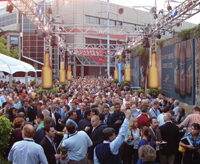
Generously sponsored by BioLegend
Monday, May 11, 2015, 7:00 PM – 9:30 PM
The Sugar Mill
1021 Convention Center Blvd.
New Orleans, LA 70130
Pause during your week of intense science to enjoy an evening with friends and colleagues at the AAI Gala: Lagniappe on the Levee—The Tastes and Tunes of New Orleans. At this festive event to be held at the historic Sugar Mill directly across from the Convention Center, you'll enjoy sampling the ambience and cuisines of three distinctive New Orleans neighborhoods—the Vieux Carré, the Garden District, and Cajun Bayou Country. You'll also be treated to the tunes of the 14-piece Swingaroux Band performing the many different genres of Louisiana music. And when you aren't dancing, you'll find lagniappe in novelty entertainment.
*Lagniappe: a Creole expression pronounced [lay-nee-ap] and meaning "a little something extra"
 Exhibit Hall & Exhibitor Workshops
Exhibit Hall & Exhibitor Workshops
Coming soon: final List of Exhibitors at IMMUNOLOGY 2015™.
Click here to view the Schedule of Exhibitor Workshops – Be sure to take advantage of the knowledge-building opportunities presented in Exhibitor Workshops. Located on the Exhibit Floor, these workshops explore companies’ latest technologies, products, and services through demonstrations and discussions.
Workshops are planned and conducted by exhibitors; the listing of these workshops does not constitute endorsement of any products or services by AAI.
Exhibit Hall Passport Program - Fill out your Exhibit Hall Passport for a chance to win one of three $250 American Express gift cards. Entries must be received by Monday, May 11, at 2:00 PM. The drawing will be held during the Poster Presentations on Monday, May 11 from 2:30 PM – 3:45 PM. You'll find your Passport in your meeting bag or you may pick one up at the AAI Booth.
 HOME
HOME


 Collapse Program
Collapse Program